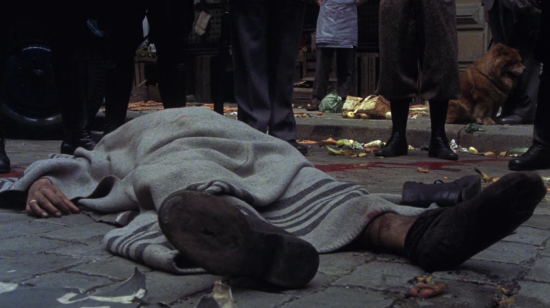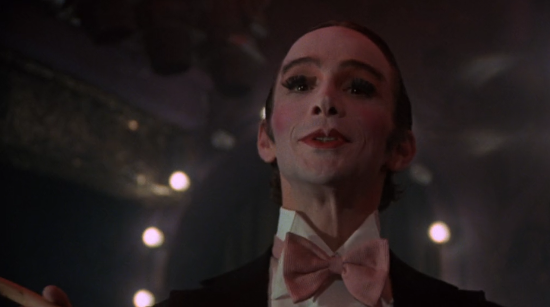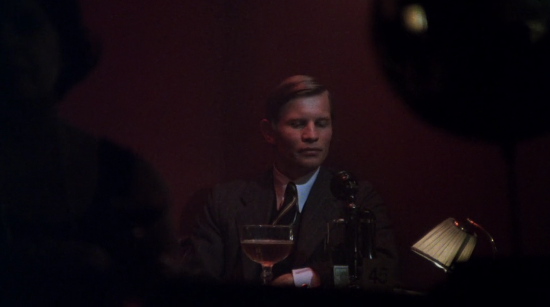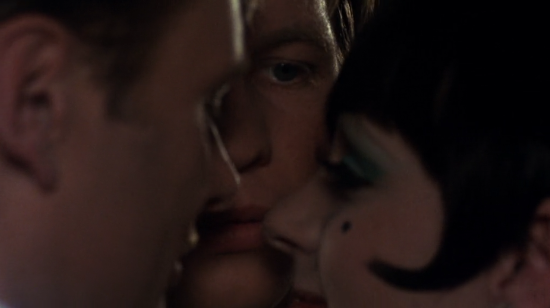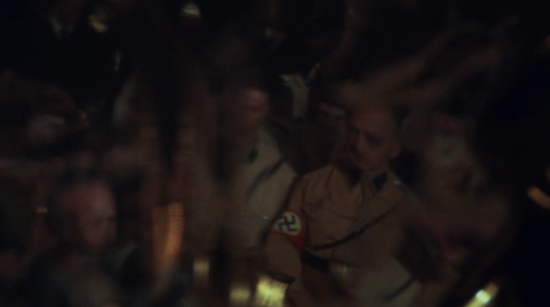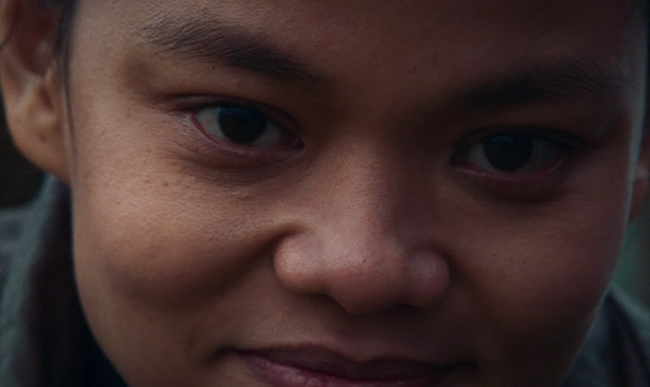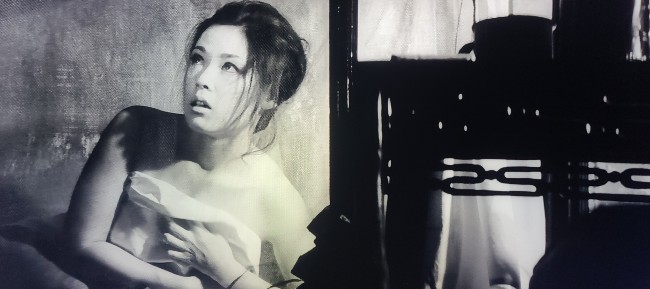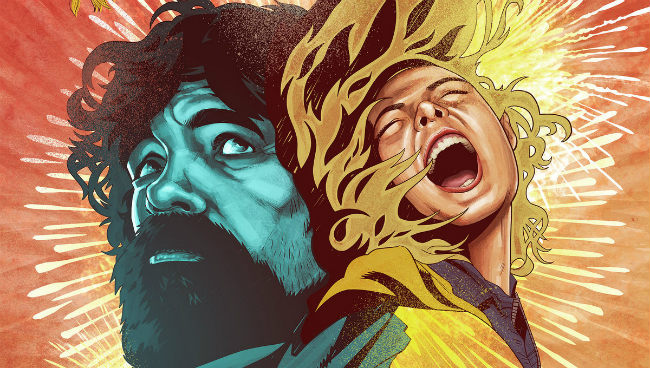Best Picture This: The 1973 Academy Awards- Cabaret
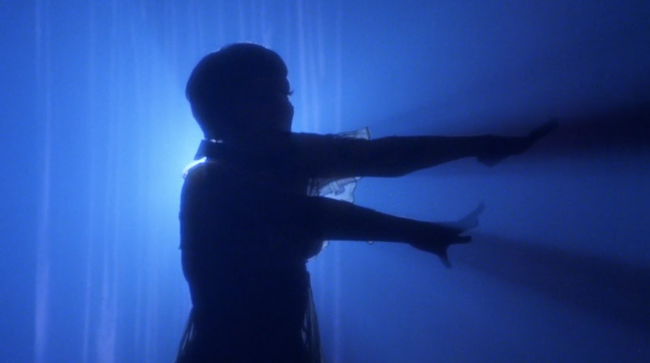
Cabaret was nominated for Best Picture at the 1973 Academy Awards. We’re here to break down the movies and finally decide if we’re going to kick it or keep it.
Are you ready for some high steps, goose steps, smoke filled rooms, a dancing gorilla, and a very creepy Joel Grey? Then join us back at the 1973 Academy Awards when the Best Picture nominees were:
The Godfather
Deliverance
and today’s movie, Cabaret.
Here’s the trailer:
History at a Glance 1972
October- Bob Fosse’s “Pippin” debuted on Broadway. It would run for over 1,900 showings until 1977. After “Pippin” won best choreography and direction at the 1973 Tony Awards, Fosse became the first director to win an Oscar, an Emmy, and a Tony in the same year.
December- NASA launches Apollo 17. It will be the United States’ last manned mission to the moon.
The Farley Award
Yet again, I am stealing a page out the Mike Cavaliere playbook which means we have two Farley Awards this time. Remember, The Farley Award is given to the best scene in a movie. Having two Farley Awards for one movie is kind of a big deal. Unfortunately, both Farley Award winning moments have to do with Nazis. That’s the thing about Cabaret. Whether it’s a song and dance number or Fritz professing undying love to Natalia, the shadow of the Nazis is always lurking.
In the first Farley Award winning moment, Sally Bowles (Liza Minnelli), Brian (Michael York), and Maximilian, a rich aristocrat, are driving down a Berlin city street. Bowles talks about money, being rich, and being famous. Between Bowles’ wishful thinking editor David Bretherton has edited fast cuts of brownshirts beating a woman and another person dead. It’s a stark reminder of how Germans, though the Bowles character is American, ignored what was going on around them instead they focused only on themselves.
The second Farley Award winning scene comes at the very end of the movie. The camera stops on the Master of Ceremonies (Joel Grey) before panning across the nightclub where it stops on a pane of smoky glass. Just visible are two Browshirts whose faces are obscured by the glass, but their Swastika armbands stand out. It’s a reminder that in just a matter of years many people in the audience would be dead. The cast and crew would either be dead or sent to concentration camps where in all likelihood they would die.
The Golden Take
Cabaret was billed as a musical and indeed it is a musical. Liza Minnelli belts out “Life is a Cabaret,” Joel Grey hits with his German accented “Mein Herr,” and the two do a duet on “Money, Money,” with sound effects for accompaniment. Yes, Cabaret is a musical but it has somehow transcended the musical genre. A lot of the credit for that goes to director Bob Fosse, who won the Oscar for Best Director, but it also goes to editor David Bretherton, who also won an Oscar for Best Editing.
Economically, Germany in 1931 was financially ruined. Banks collapsed and closed, employment was sky high, and businesses were closing. In addition, the reparations imposed by the Treaty of Versailles further crippled a Germany well into a depression. The Weimar Republic was coming to an end even if it didn’t realize it at the time.
Although the economics of Germany is never the focus of Cabaret, Bretherton brings the effects of the economic situation to the front through keenly edited scenes. The scenes are enough to let the viewer know something was wrong in Germany. Even if you knew nothing about the Weimar Republic or the economic situation in the country it’s obvious things are bad all around. It was these conditions that lead to the rise of Adolf Hitler and the Brownshirts.
The Golden Take Part II
For a time under the Weimar Republic cabarets, jazz music, scantily dressed women, drag, and even homosexulaity were tolerated. Any semblance of tolerance would be thrown out the window when Adolf Hitler became Reich Chancellor of Germany. Before that Hitler’s brownshirts, lead by Ernst Rohm, ran the streets. In 1938, they would be the stormtroopers who burned Jewish business and homes and beat up women, children, and the elderly during The Night of Broken Glass (Kristallnacht).
Fosse and Bretherton deftly inserted Nazis and its fascist views both overtly and covertly into Cabaret. Brownshirts linger in the crowd. Another brownshirt is kicked out of the nightclub for being rude and vulgar. Even the brownshirts sitting in the crowd watching the shows pose an existential threat. The same brownshirt kicked out returns with more brownshirts and beat the doorman possibly to death. Then there are the already mentioned brownshirts who beat German citizens, more than likely Jewish, on the streets. The brownshirts in 1931 were only warming up.
The Golden Take Part III
The kean audience member may be aware of what’s going on the background, but Sally Bowles is painfully unaware of what is going on right under her nose. She’s focused on herself, even when she thinks she’s pregnant, it’s all about her. She’s convinced stardom, riches, and fame are in her future. Brian Roberts (Michael York), an English teacher, knows she’s not bound for fame, but it doesn’t seem to bother him. In his own way he loves Sally. Her relationship with the rich Maximilian von Heune (Helmut Griem) bothers him. He’s rich and she’s convinced he will take her with him. Of course, this doesn’t happen and Bowles’ opinion of herself doesn’t change.
So, is Cabaret a musical? I would argue Cabret is more of a musical in the tradition of Streets of Fire than The Sound of Music. The musical numbers are not the movie. The members in the cast at the cabaret are more akin to a Greek course. It’s leader, the Coryphaeus, is the very creepy Master of Ceremonies who always seems to have a puckish grin on his face. They tell the viewers through song and dance what happened in the prior scenes and what will happen in the future. Cabaret is not a musical it’s a movie about a country falling apart and being lead to war by a mad man. It’s a story of two lovers who just can’t seem to connect until it’s too late.
Keep It Or Kick It
Once upon a time I would say, “Oh, I hate musicals except for….” then I would rattle off the musicals I liked. I finally gave up and said “I like musicals.” But I am not sure if I would keep Cabaret. I love what Fosse, Bretherton, and cinematographer Geoffrey Unsworth have done with the film. On the other hand, I don’t like Sally Bowles for reasons already mentioned. I don’t like the character of Brian Roberts. He’s whishy-washy, non-committal about anything, and when someone comes into his life who may make him happy he lets him go.
For now I’m keeping Cabaret on the Keep List. However, there were a lot of great movies released in 1972. We’ll have to see how things shape out the closer we get to the end of the 1973 Academy Awards.

